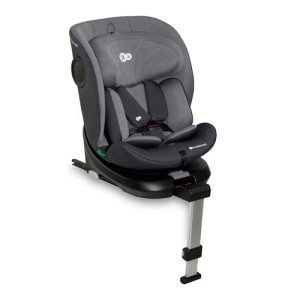Strollers and Pushchairs: The Ultimate Guide for Parents
Selecting the right stroller or pushchair is among the most important decisions brand-new parents will make. With a variety of alternatives available, understanding the differences and functions can substantially affect the experience of both parents and kids. This extensive guide intends to brighten the differences in between both, the elements to consider when acquiring, and answers to regularly asked questions.
Understanding Strollers and Pushchairs
Strollers and pushchairs are often utilized interchangeably, however subtle distinctions set them apart. A stroller is usually designed for infants and young children, offering a more flexible technique with included features for convenience and security. On the other hand, pushchairs are normally focused on older babies who can sit up unaided and tend to be more light-weight and portable.
Secret Differences Between Strollers and Pushchairs
| Feature | Stroller | Pushchair |
|---|---|---|
| Age Range | Newborn to toddler | Typically for 6 months to 3 years |
| Weight | Generally much heavier due to extra functions | Lighter and frequently much easier to carry |
| Recline Position | Can normally recline completely for infants | Limited recline; frequently upright |
| Storage Space | More storage compartments and devices available | Very little storage, frequently simply a small basket |
| Convenience | Developed with more padding and support | Less padding, lighter frame for ease of use |
| Foldability | May have complex folding mechanisms | Often designed to fold easily and compactly |
Factors to Consider When Buying a Stroller or Pushchair
When choosing between a stroller or pushchair, a number of elements can form your decision. Here are some important considerations:
1. Security Features
- Harness system (5-point is the safest)
- Stability and strength of the frame
- Brakes that lock securely
2. Comfort
- Cushioning and assistance for the child
- Adjustable seat positions
- Ventilation for heat
3. Size and Weight
- How simple is it to transport?
- Will it suit your vehicle?
- Does it take up too much storage area at home?
4. Versatility
- Is it versatile for safety seat or carrycots?
- Can it manage different terrains (city vs rural)?
5. Cost
- What is your budget plan?
- Does the stroller/pushchair deal worth for its functions?
6. Reduce of Use
- How easily can it be folded and unfolded?
- Is it simple to browse through crowds or tight areas?
7. Sturdiness
- What products are used?
- For how long is the guarantee?
8. Brand name Reputation
- Search for brands known for producing quality products.
- Check out reviews from other parents.
The Types of Strollers and Pushchairs
Strollers and pushchairs been available in numerous styles, each dealing with particular needs. Here's an overview:
1. Basic Strollers
- Sturdy and well-padded.
- Suitable for daily usage.
2. Lightweight Strollers
- Really portable and easy to carry.
- Appropriate for travel.
3. Jogging Strollers
- Designed for active parents.
- Can manage rugged terrains.
4. Convertible Strollers
- Can adjust from a single to double stroller.
- Flexible and grows with the household.
5. Travel Systems
- Includes a baby automobile seat and a stroller.
- Offers seamless transitions from vehicle to stroller.
6. Umbrella Strollers
- Extremely portable and low-cost.
- Best for fast trips and older babies.
| Type of Stroller | Pros | Cons |
|---|---|---|
| Basic | Strong, comfy | Heavier and bulkier |
| Lightweight | Easy to bring | Limited functions |
| Jogging | Great for workout and outside usage | May not appropriate for infants |
| Convertible | Versatile for growing households | Bulkier than standard strollers |
| Travel System | Benefit of combined necessities | Can be expensive |
| Umbrella | Really portable | Less long lasting |
FAQs About Strollers and Pushchairs
Q1: At what age can a baby utilize a stroller?
A lot of strollers appropriate for use from birth if they totally recline. Guarantee to inspect manufacturer guidelines, as some may just accommodate babies over 6 months.
Q2: How do I clean my stroller or pushchair?
Many strollers have removable and washable fabrics. Use Best Prams And Pushchairs and water for the frame and inspect the fabric labels for specific cleansing directions.
Q3: Can I utilize a stroller on numerous terrains?
Yes, specific types, like jogging strollers or all-terrain strollers, are particularly developed for uneven surface areas. Nonetheless, Pram Stores Near Me -weight models are not suitable for rough surface.
Q4: How long can I expect my stroller to last?
Quality strollers can last a number of years, typically until the kid is around 4 to 5 years old, depending upon use and care.
Q5: Are strollers safe for overnight sleeping?
While some strollers use flat recline positions that appropriate for baby sleep, it's critical to follow safety guidelines and monitor the child while in the stroller.
Choosing the right stroller or pushchair is a choice that extends beyond simple choice; it enhances the parenting experience and ensures the safety and convenience of the kid. By comprehending the differences, examining various elements, and exploring the types readily available, parents can make an informed choice that accommodates their way of life and satisfies the requirements of their growing household. Remember to constantly focus on security and convenience above everything!

